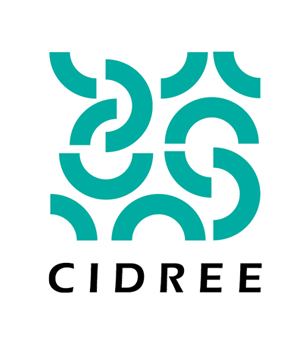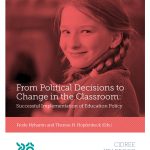
Yearbook 2013
Balancing Curriculum Regulation and Freedom across Europe
Edited by Wilmad Kuiper & Jan Berkvens
The CIDREE Yearbook 2013 focuses on curriculum (de)regulation policies, practices and research first and foremost (but not solely) as regards the compulsory age of schooling across Europe. In particular, it aims to provide curriculum policy-makers, curriculum developers and curriculum researchers in (and outside) Europe with a collection of country papers in which attempts are made to disentangle, interpret, position, and discuss the (often complicated) balancing act between curriculum regulation and curriculum deregulation. ‘Curriculum regulation’ (Kuiper, Nieveen, & Berkvens, elsewhere in this Yearbook) is defined as a government’s intention to prescribe the high-fidelity implementation of directives at the input level (goals and contents, in terms of ‘goals to attain’ or ‘goals to strive for’) and at the output level (modes of assessments and examinations, surveillance by the inspection; governance). Those prescriptions at ‘the front door’ and at ‘the back door’ of education imply that the room for site-specific curricular choices is restricted. On the other hand, ‘curriculum deregulation’ reflects a government’s intention to refrain from prescription and control at the input and output level by stimulating school-based decision-making. At the heart of curriculum deregulation is the focus on and trust in schools and teachers having the freedom to make site-specific interpretations of curriculum guidelines and to lead curriculum renewal.
The idea behind Yearbook 2013 is that much can be learned from an analysis of examples of, motives behind and experiences with searching a proper balance between more or less curriculum regulation and offering schools more or less freedom to make site-specific curricular choices in a number of European countries. Policy, research and practice should all three inform curriculum development activities conducted by CIDREE agencies. And articulating experiences should solidify the curriculum knowledge base.
The thirteen contributions to this Yearbook are all taking a different angle on the theme. During the last decade we have seen the demand for generic skills to be taught, and standards setting to ensure literacy and numeracy knowledge and skills. What knowledge and skills are of most worth is fundamental to curriculum development, but enactment in the classroom asks for adjustments of what is intended in order to make a fit to the local context and student population. The discourse on the needs for and the effects of curriculum regulation and deregulation is very relevant to the daily work of the member institutions of CIDREE. We are all familiar with the tension that exists between the intended, enacted and the attained curriculum, with its concerns about teacher professionalism, equity for students, cries for freedom and calls for specifications. The various contributions to this Yearbook give a rich view on those needs, intentions, tensions and effects and can briefly be summarized as follows.


